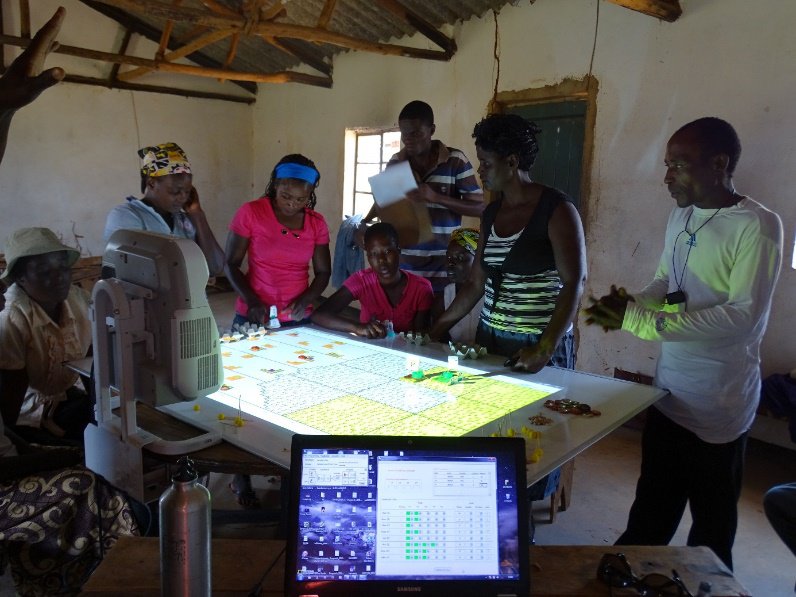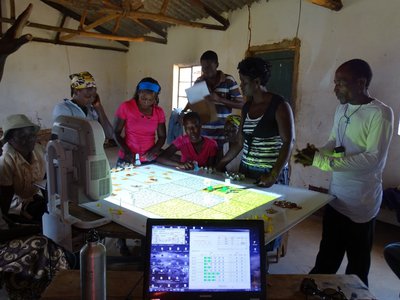Kulayinjana 1.0.0
The model aims at supporting the setting-up of a fair and balanced dialogue arena where rural communities and protected area managers at the periphery of Hwange National Park (Zimbabwe) may collaborate to produce effective management plans. Adopting the Companion Modelling approach, we conducted a participatory modelling experiment to co-design a role-playing game simulating the interactions between farming activities, livestock herding and wildlife in a virtual landscape reproducing local socioecological dynamics. After 18 months of intensive ethnographical fieldwork to gain knowledge and legitimacy, we co-designed with a group of volunteer villagers the first version of the game during one year. The game was tested and validated by other members of the rural communities, and subsequently presented to protected areas’ managers. This approach allowed the negotiation of uncertainties and their inclusion in a model that constitutes a shared representation of farmers’ interactions with the protected area.

